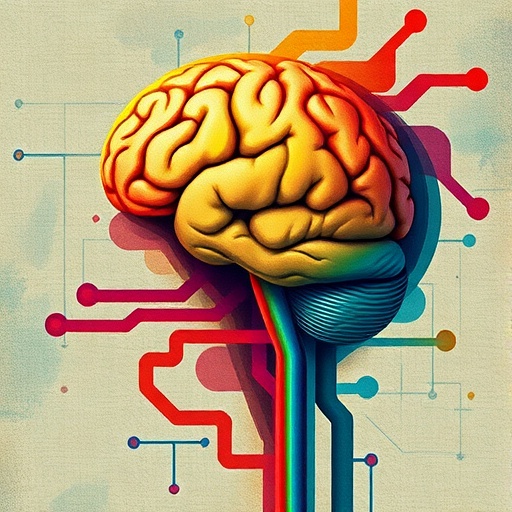A groundbreaking international study published today in Nature Communications has unveiled compelling scientific evidence that engaging in creative activities such as music, dance, visual arts, and even specific video games can significantly slow brain aging and foster healthier brain function. This landmark research, which involved more than 1,400 participants from 13 countries, bridges cultural appreciation for creativity with its neurological impact, demonstrating its remarkable capacity to protect brain health in a measurable and biologically significant way.
Creativity, often celebrated for its cultural and personal importance, is now firmly established as a critical factor in brain health. This study is the first large-scale scientific investigation to empirically confirm that sustained creative engagement correlates with a biologically younger brain—a finding that challenges conventional perspectives on prevention and intervention in neurodegenerative diseases. Researchers observed these effects across a diverse group including expert tango dancers, accomplished musicians, visual artists, strategy gamers, and novices who participated in short-term training, highlighting the universal accessibility and benefits of creative practice.
Led by Dr. Agustin Ibanez, a prominent authority in brain health at Trinity College Dublin’s Global Brain Health Institute and the Latin American Brain Health Institute, the research utilized cutting-edge brain imaging technologies such as EEG (electroencephalography) and MEG (magnetoencephalography). These modalities enabled the construction of “brain clocks,” computational models that estimate biological brain age based on neural activity and cognitive function. The study revealed that individuals who regularly engage in creative activities display brain clocks that indicate younger brain profiles, particularly in regions most vulnerable to neurodegeneration, including the hippocampus, prefrontal cortex, and parietal lobes.
Traditionally, brain clocks have been used primarily to identify negative factors influencing brain health, such as genetic predispositions, environmental toxins, and social disadvantages. However, this pioneering study extends the utility of brain clocks by demonstrating their sensitivity to positive, resilience-enhancing experiences like creativity. The implication is profound: brain clocks can now serve as dynamic markers for monitoring the efficacy of interventions designed to nurture brain resilience and stave off cognitive decline.
The research design was exceptionally rigorous, encompassing computational modeling that illustrated how creative engagement fortifies brain connectivity and optimizes information processing efficiency. These mechanisms are thought to underlie creativity’s protective role, fostering more robust and efficient neural networks less susceptible to the disruptions that characterize aging and neurodegenerative pathology. This integrative approach, validating results across different brain imaging modalities and types of creative expression, underscores the generalizability of creativity’s neuroprotective effects.
Dr. Carlos Coronel, the study’s first author and Postdoctoral Fellow at Trinity College Dublin’s Global Brain Health Institute, emphasized that the benefits of creative engagement are not confined to experts. Remarkably, even brief interventions—such as short-term video game training sessions—yielded measurable improvements in brain health indicators among learners, widening the scope for accessible and scalable public health strategies.
This research profoundly reshapes how we conceptualize healthy aging. Rather than viewing creative pursuits merely as leisurely or cultural activities, they emerge as potent, scientifically validated neuroprotective strategies comparable in importance to physical exercise or nutritional interventions. These findings invite healthcare systems and policymakers to integrate creativity-based programs into comprehensive brain health promotion frameworks that transcend traditional medical paradigms.
The implications for public health are especially significant. Creativity offers an economical, accessible, and engaging method to combat age-related cognitive decline and bolster brain resilience. The study advocates for creativity to be “prescribed” akin to physical exercise, leveraging its capacity to maintain and improve brain network integrity. This cultural and neurological paradigm shift opens avenues for novel therapeutic interventions targeting brain aging and disorders such as dementia.
Moreover, the study highlights the adaptability of brain clocks as important tools not only for diagnosing disease risk but for qualitatively assessing the positive impact of lifestyle and experiential factors on brain biology. This dual function proposes a future where brain clocks can dynamically guide personalized interventions and monitor progress objectively, offering a precision medicine approach to brain health enhancement.
Creativity’s protective influence spans various domains—from the rhythmic precision and cognitive demands of tango dancing to the strategic planning involved in certain video games, to the imaginative capacities fostered through visual arts. Despite their differences, these activities share underlying mechanisms that preserve critical brain circuits, suggesting multiple pathways to achieving cognitive vitality through creative expression.
Dr. Ibanez aptly remarks that reimagining healthy aging requires integrating non-medical domains such as creativity, arts, and play alongside biomedical approaches. Our societies must embrace this comprehensive vision to cultivate cognitive well-being throughout the lifespan, thus addressing the challenges posed by aging populations worldwide.
In summary, this expansive and multidisciplinary investigation affirms creativity as a powerful determinant of brain health. It substantiates the role of creative experiences not only in enriching life culturally but in acting as robust, scientifically-grounded tools to slow brain aging and maintain cognitive function. These insights propel new research and policy directions that could transform public health strategies aimed at the neurological challenges of the 21st century.
For those interested, the full study titled Creative experiences and brain clocks is accessible through Nature Communications at the following link once the embargo lifts: http://doi.org/10.1038/s41467-025-64173-9.
Subject of Research: People
Article Title: Creative experiences and brain clocks
News Publication Date: 3-Oct-2025
Web References: http://doi.org/10.1038/s41467-025-64173-9
Keywords: Aging populations, Geriatrics, Older adults, Human health, Central nervous system, Brain, Human brain, Cognitive function, Cognitive disorders, Social research




